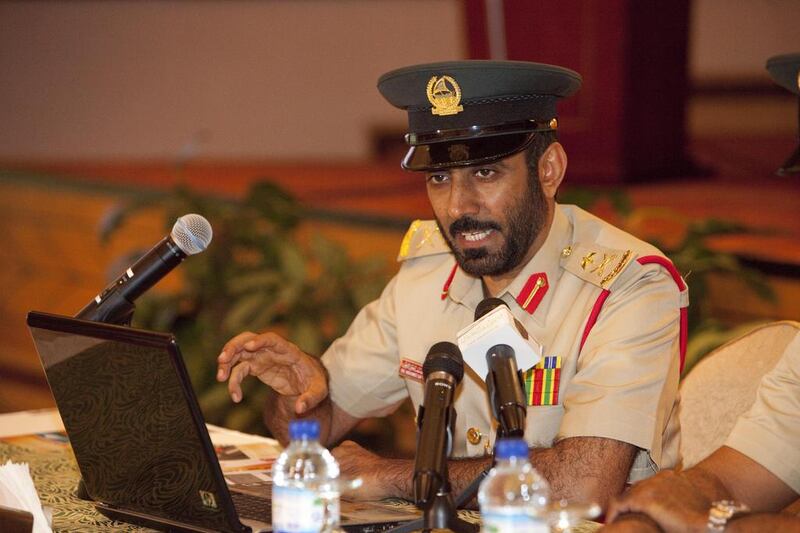ABU DHABI // Driver training will be crucial after a law lowering the driving age from 18 to 17 is passed, experts say.
Khaled Al Mansoori, vice chief executive at Emirates Driving Company in Abu Dhabi, said younger students would require a different emphasis in training.
“We will put greater emphasis on evaluating and testing a driver of 17 years to demonstrate driving skills that focus on driver anticipation and safe decision-making,” Mr Al Mansoori said.
But he said EDC was not expecting a great increase in the number of students.
“Many people of that age are focused on their senior school years and their education is of high priority,” Mr Al Mansoori said.
The proposal to reduce the legal driving age to 17 has been unanimously approved by the Federal Traffic Council, led by Maj Gen Mohammed Al Zafeen.
Dino Kalivas, director of training at EDC, said decreasing the age for driving would have little effect.
“The issue of the acceptable driving age is largely emotional and psychological,” said Mr Kalivas.
“In the US, many states have a legal driving age from 16 years, while in many countries the age of 18 years is considered acceptable best practice.
“Statistically, there is very little evidence to differentiate collision rates being higher for those aged 17 or 18.”
Effective training would need to provide the skills and experience in a low-risk environment, said Dr Abdulilah Zineddin, a road-safety expert.
There are typically three steps to obtaining a licence: acquiring a learner’s permit; progressing to a restricted, provisional or probationary licence; then obtaining the full driver’s licence.
Gen Al Zafeen, director of Dubai Police’s traffic department, which made the recommendation, said it would now be submitted to the Ministry of Interior’s policies and strategies council.
“Many finish high school at 17 and want to drive a car,” he said on Sunday. “Why are we making things difficult for them by not allowing them to get a licence?
“They are forced to drive a motorcycle which is far more dangerous than a light vehicle.”
Gen Al Zafeen said many at that age needed to drive to university, and legalising it would reduce the number driving without a licence and without parental approval.
“It is common sense that they need to be given an opportunity to obtain a licence,” he said.
The decision would also benefit families that rely on younger members to run daily errands, Gen Al Zafeen said.
Youths in Abu Dhabi can join EDC at 17 to start learning theory. At 18 they may take the road test and either go straight on the road or be placed in a class according to their ability.
In May 2012, Dubai’s Roads and Transport Authority announced that youths could learn to drive and sit their licence test at 17 and a half years.
Fawaz Moukayed, chief executive of Guardian Insurance Brokers, said lowering the driving age would harm the insurance business.
“Mature drivers are more careful on the road,” Mr Moukayed said. “Teenagers in general are irresponsible because their cars are being paid for by their parents.
“They should be strictly supervised to ensure they adhere to the traffic rules.”
His son, aged 22, obtained a UAE licence at 18 that was valid for two years.
“Having a clean driving record for two years he was then granted a licence that was valid for 10 years,” Mr Moukayed said.
But Ramzi Al Nadaf, head of motor claims at Oman Insurance, said: “If a 17-year-old is willing to drive carefully in a mature manner, I don’t think it would affect us that much.
“The rules to obtain a driving licence here are strict.”






